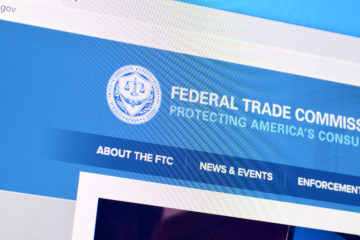The Market Institute President Charles Sauer has a new article in Real Clear Markets highlighting the Federal Trade Commission’s cooperation with European regulators.
He writes:
“At a recent hearing of the House Committee on Energy and Commerce’s Subcommittee on Innovation, Data, and Commerce, Federal Trade Commission (FTC) Chair Lina Khan complained that the FTC was underfunded. South Carolina Representative Jeff Duncan pointed out that the supposedly cash-strapped FTC found the money to dispatch FTC staffers to Europe to assist in the implementation of the European Union (EU)’s Digital Markets Act (DMA).
The DMA claims to promote competition among technology companies by requiring gatekeeper—-large tech companies like Amazon, Alphabet (parent company of Google and YouTube) and Meta (parent company of Facebook and Instagram)—to share their intellectual property with competitors and allow competitors access to their operating systems. The DMA prohibits the gatekeepers from preferencing, which is when a company manipulates its search results to promote its own products over those of smaller vendors that use the large companies platforms.
Many critics of Khan have pointed out that the majority of the gatekeepers are American companies that will be forced to share proprietary information with foreign companies, including Chinese companies. This has led them to accuse Khan of using taxpayer money to help the EU and hurt successful American businesses.
However, Khan’s critics fail to take into account that she does not view big tech companies like Meta, Alphabet, and Amazon as American success stories. Rather, she see them as ravenous monopolies intent on either acquiring or destroying their smaller competitors. She also believes the only way to limit their monopoly power is through aggressive government use of antitrust laws. Thus, she thinks working with other countries to impose new regulations on big tech is part of her job.
Khan may be partially interested in the DMA because the ban on preferencing mirrors the ban in the American Innovation and Choice Online Act. The bill introduced by Minnesota Senator Amy Klobuchar, Chair of the Antitrust Subcommittee of the Senate Judiciary Committee, is sponsored by a number of leading Republicans, including Iowa Senator Chuck Grassley and Lindsey Graham. In 2022, the bill passed out of the Judiciary Committee. Senate Majority Leader Chuck Schumer promised Klobuchar that he would bring the bill to the Senate floor for a vote. However, concerns over how the bill would impact popular online services like Amazon Prime caused Schumer to “postpone” holding a vote. At a hearing in March Klobuchar announced she would “soon” be reintroducing it. She has yet to do so which suggests the bill, at least in its current form, is unlikely to pass in the Republican controlled House. Republican anger at big tech for imposing new regulations on social media remains a distinct minority position.
Thus, with Congress unlikely to give Lina Khan new powers to support preferencing, she may be dispatching FTC staff to help implement the DMA as way to get around Congress. At the very least, this gives proponents of the bill a new argument to use in its promotion. Since Amazon and other big tech companies already have to follow most of these regulations, this bill does not really impose any new burden on them. Even better for Khan, Amazon and other big companies may decide it is easier for them to voluntarily follow the DMA rules everywhere than adapt different rules for different countries. This would give Khan a victory without waiting for Congress to pass new laws.
Khan may also be influencing European antitrust regulators. Recently, the UK’s Competition and Market Authority seemed poised to approve Microsoft’s acquisition of video game maker Activision, which the FTC is trying to block in American courts. However, after meeting with Khan, CMA denied the merger.”


